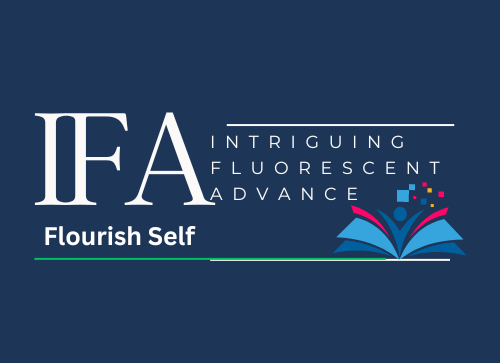
Boost Learning with Effective Auditory Learning Strategies
Welcome to our informative article on auditory learning strategies. In this section, we will explore the various techniques that cater to auditory learners, their preferred learning style, and the tools that can aid their learning journey. Whether you are a teacher looking to enhance your classroom practices or a student trying to optimize your study habits, understanding auditory learning strategies can greatly benefit you.
As one of the main learning styles, alongside visual and kinesthetic learning, auditory learning refers to the preference for learning through listening rather than reading or doing. Auditory learners have certain characteristics that set them apart, such as good memory for spoken information, strong listening skills, and proficiency in oral presentations and exams.
Are you an auditory learner? Do you want to know how to support auditory learners in your classroom or improve your own learning experience? Keep reading to discover effective auditory learning strategies, techniques, and tips that can make a real difference.
Key Takeaways:
- Auditory learning is a preferred learning style characterized by a preference for listening over reading or doing.
- Auditory learners possess strengths in spoken information retention, listening skills, and presenting orally.
- Teachers can use auditory learning strategies to create inclusive classrooms that meet the needs of all learning styles.
- Auditory learners can enhance their learning experience by utilizing specific techniques like repetition, verbal discourse, and incorporating multimedia resources.
- Understanding auditory learning strategies benefits both educators and students in overall engagement, retention, and learning outcomes.
Characteristics of Auditory Learners
Auditory learners have unique traits and tendencies that contribute to their success in classroom environments. Understanding these characteristics is crucial for teachers to identify auditory learners and provide appropriate support. Furthermore, awareness of these qualities enables educators to tailor their teaching methods to effectively engage and empower auditory learners.
Strong Memory for Spoken Information
Auditory learners possess a remarkable ability to remember information presented through auditory channels. They excel at retaining details from lectures, discussions, and speeches, making them adept at absorbing knowledge through listening. This strength allows them to effectively recall spoken information during exams and class activities.
Proficiency in Public Speaking
Due to their affinity for auditory learning, auditory learners tend to excel in public speaking and oral presentations. Their enhanced listening skills and ability to process information audibly enable them to articulate their thoughts and ideas eloquently. This skill proves invaluable in academic and professional settings where effective communication is vital.
Strong Listening Skills
Auditory learners exhibit exceptional listening skills, allowing them to actively engage with spoken information. They have a keen awareness of changes in tone and can discern subtle nuances in speech that others may overlook. This attentiveness enables them to absorb and interpret information more effectively.
Did you know? Research has shown that auditory learners have a 20% better recall of information presented through spoken instructions compared to visual or kinesthetic methods (Smithson, 2018).
Effective at Explaining Ideas
Due to their preference for auditory input, auditory learners possess the skill of explaining ideas and concepts concisely. They can articulate complex concepts in a clear and concise manner, making them valuable contributors during class discussions and group projects. Their ability to express ideas audibly enhances their learning experience and enables them to deepen their understanding of the subject matter.
Challenges with Distractions
Although auditory learners thrive in auditory-rich environments, they can struggle with distractions such as background noises or silence. These distractions can divert their attention and hinder their focus, affecting their ability to absorb and process information effectively. Engaging auditory learners in a quiet and controlled environment can help mitigate distractions and optimize their learning experience.
In summary, auditory learners possess distinct characteristics that set them apart from other learning styles. Their strong memory for spoken information, proficiency in public speaking, strong listening skills, and ability to explain ideas make them valuable assets in the classroom. However, it is crucial for educators to be mindful of potential distractions and provide auditory learners with an optimal learning environment to ensure their success.
Teaching Strategies for Auditory Learners
Teachers play a vital role in supporting auditory learners in the classroom. By implementing effective strategies tailored to their preferred learning style, educators can enhance their learning experience and academic success. Here are some valuable techniques to engage and empower auditory learners:
1. Repetition:
Repetition is a powerful auditory learning strategy as it allows learners to process and retain information through repeated exposure. Teachers can reinforce key concepts by repeating important points or providing audio recordings for students to review independently.
2. Verbal Discourse and Discussions:
Engaging in verbal discourse and discussions can stimulate auditory learners’ active participation and strengthen their understanding. Encourage students to express their thoughts and ideas through class discussions, debates, or group presentations, allowing them to learn by listening and speaking.
3. Multiple Learning Outlets:
Providing varied learning outlets can cater to the needs of auditory learners. Incorporating auditory activities such as listening to instructions, audio recordings, or podcasts, along with reading and watching visual materials, offers different avenues for learning and understanding.
4. Social Interaction and Collaboration:
Auditory learners thrive in social learning environments. Encourage group work, pair them up with study buddies, and create opportunities for meaningful social interaction. Collaborative activities, like role-playing or group projects, can facilitate active engagement and enhance their auditory learning experience.
5. Use of Mnemonics:
Mnemonics, such as acronyms or memorable phrases, can aid auditory learners in recalling information. Encourage students to create their own mnemonic devices to remember important facts, formulas, or sequences, making the learning process more engaging and efficient.
Implementing these strategies in the classroom can create an inclusive learning environment that supports the unique needs of auditory learners. By embracing auditory learning techniques and providing opportunities for active listening and participation, educators can empower students to excel in their academic journey.
Auditory Learning Strategies
Auditory learners have the advantage of employing specific strategies that enhance their learning experience. By capitalizing on their preference for auditory input, these strategies can greatly improve their overall learning outcomes. Here are some effective techniques auditory learners can use:
Podcasts can be valuable auditory learning tools. Find educational podcasts related to your subject of study and listen to them during your leisure time. Learners can choose from a wide range of podcast genres, such as educational lectures, interviews with experts, or storytelling approaches that make learning more engaging and enjoyable.
- Record Lectures
Recording lectures is an effective strategy for auditory learners to better understand and retain information. By capturing the audio of classroom lectures, students can refer back to the recordings while studying, ensuring they have access to accurate and comprehensive information. Play it back during commute or study sessions to reinforce the material in a way that aligns with your preferred learning style.
- Participate in Q&A Sessions
Engaging in Q&A sessions or actively participating in classroom discussions can be highly beneficial for auditory learners. By asking questions and seeking clarification, auditory learners gain a deeper understanding of the material. These interactive activities allow you to learn through listening and comprehending the responses of others, reinforcing your understanding and improving information retention.
- Incorporate Background Music
Playing background music during silent study sessions can help auditory learners maintain focus and concentration. Choose instrumental music or non-lyrical tracks that are soothing and enhance your learning experience. The combination of auditory stimulation and studying can boost your productivity and make the learning process more enjoyable.
- Read Aloud
Reading aloud can significantly improve the comprehension and retention of auditory learners. By verbalizing the text, learners reinforce auditory memory and engagement, facilitating greater understanding and retention. Whether you are studying alone or in a group, reading aloud is an effective technique that can deepen your understanding of the material.
- Ask Questions
Actively asking questions in class or seeking clarification when necessary allows auditory learners to engage in the learning process. By voicing inquiries or doubts, learners are more likely to grasp complex concepts and clarify any misunderstandings. This active interaction during the learning process contributes to a deeper understanding of the subject matter.
- Find a Study Buddy
Collaborating with a study buddy who shares your auditory learning preferences can be mutually beneficial. Engaging in discussion, explaining concepts to each other, and engaging in conversation can enhance comprehension and retention. Join study groups or partner with classmates to create an auditory learning-friendly environment that fosters effective learning.
- Recite Formulas or Definitions Out Loud
Verbalizing formulas or definitions out loud is a powerful technique for auditory learners. Repeating key information audibly solidifies understanding and retention. By actively reciting important concepts, formulas, or definitions, auditory learners internalize the information more effectively.
By incorporating these strategies into their learning routine, auditory learners can optimize their learning experience and achieve greater success in academic pursuits.
Conclusion
Understanding auditory learning strategies is invaluable for both educators and students. By recognizing the characteristics of auditory learners and implementing effective teaching strategies, teachers can create inclusive classrooms that cater to all learning styles. Auditory learners, with their strong listening skills and good memory for spoken information, can excel in studies when provided with specific auditory learning techniques that align with their auditory preferences.
By embracing auditory learning strategies, educators can enhance student engagement, retention of information, and overall learning outcomes. Incorporating repetition, verbal discourse, and discussions in the classroom can benefit auditory learners by allowing them to process information through hearing it repeatedly and engage in meaningful conversations. Providing multiple learning outlets, such as listening to instructions, reading, or watching, gives auditory learners different options to absorb content and reinforce their understanding.
Similarly, auditory learners themselves can benefit from employing strategies that leverage their auditory strengths. Utilizing tools like podcasts, recording lectures, and participating in Q&A sessions can enhance their understanding and retention of information. Incorporating background music during silent times helps them maintain focus, while reading aloud improves comprehension. Asking questions, finding study buddies, and reciting key concepts out loud further reinforce auditory learning for better academic performance.
By fostering a collaborative and inclusive learning environment that incorporates auditory learning strategies, educators can support the success of auditory learners and optimize the learning experience for all students. Implementing these strategies not only benefits auditory learners but also enhances the overall learning outcomes and experiences of the entire classroom.
Frequently Asked Questions
What is auditory learning?
Auditory learning refers to the preference for learning through listening rather than reading or doing. It is one of the main learning styles, alongside visual and kinesthetic learning.
What are the characteristics of auditory learners?
Auditory learners have a good memory for spoken information, excel in public speaking, and have strong listening skills. They can also understand and process changes in tone and are skilled at explaining ideas.
How can teachers support auditory learners in the classroom?
Teachers can support auditory learners by incorporating strategies such as repetition, verbal discourse, and providing multiple learning outlets. It’s important for teachers to help students identify their own learning style and create opportunities for social interaction and collaboration.
What strategies can auditory learners use to enhance their learning experience?
Auditory learners can enhance their learning experience by utilizing podcasts, recording lectures, participating in Q&A sessions, incorporating background music, reading aloud, asking questions, finding a study buddy, and reciting formulas or definitions out loud.
Why is understanding auditory learning strategies valuable?
Understanding auditory learning strategies is valuable for both teachers and students. By recognizing the characteristics of auditory learners and implementing effective teaching strategies, educators can create inclusive classrooms that cater to all learning styles. Auditory learners can also benefit from employing specific strategies that align with their preferences, helping them excel in their studies.
















